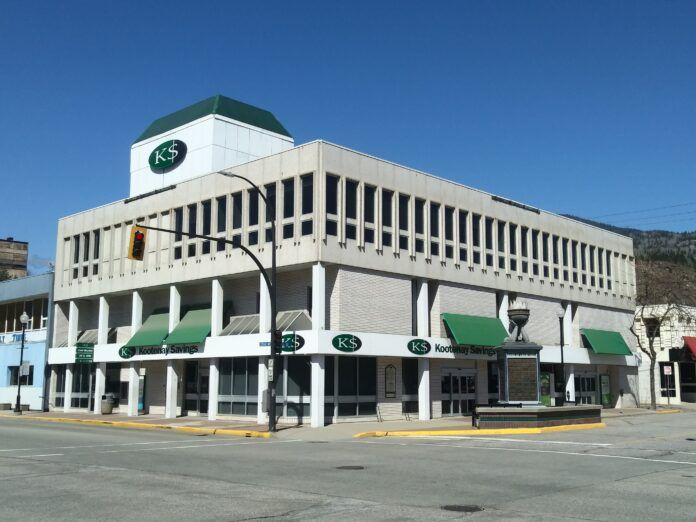A local credit union wants to do its bit to help address homelessness in Trail and other local communities.
Kootenay Savings CEO Mark McLoughlin appeared before Trail city council last week as they debated moving the local homeless shelter to a new location and pledged his assistance.
“We’re always as an organization wanting to ensure we’re doing what we can to support our communities,” he said in an interview afterward.
“An issue like homelessness is not limited to Trail but is at the forefront of what our residents, members, and businesses are dealing with.”
Although he didn’t present specifics, McLoughlin said they may be able to offer both financial support and human resources to the issue.
He noted the credit union has already provided support to a Selkirk College initiative looking at homelessness.
“What those solutions look like, I don’t know,” he said. “But lots of organizations are starting to come together and have conversations about what they can bring to the table. We need to be playing our part. No doubt there’s a social responsibility.”
While Kootenay Savings has its head office downtown Trail, McLoughlin said the offer extends to other communities in the area, including those where they don’t have branches.
McLoughlin, who took over as head of the credit union just over a year ago, met with both the previous and current council and said the issue came up as a key priority.
Meanwhile, the chair of Trail’s supportive housing working group is applauding council’s decision to approve the new shelter location.
“It’s really appreciated the work they’ve done,” Bill Van Beek said. “The new council did a lot of learning and stepping up. I thank them for their support.”
At the same meeting where McLoughlin spoke, Van Beek urged council to approve the new shelter.
His informal group has 10 to 15 members and representation from BC Housing, Interior Health, Career Development Services, the Skills Centre, Trail city council, and church groups. It was formed a few years ago following a summit on poverty in Trail.
They’ve been trying to find a location for a supportive housing project ever since, although Van Beek says a number of things diverted their attention, including COVID, the opioid crisis, the heat dome, and the shelter issue.
He says they are now getting back on track. The working group has passed along potential sites to BC Housing for investigation, but nothing has panned out so far.
“It needs to be a low barrier location,” he says. “You put it way out [of town], nobody’s going to go to it, it’s not going to be used. Also it has to be within BC Housing’s purchasing guidelines.”
Supportive housing is intended to take the place of the new shelter, which has been granted a one-year permit with the possibility of an extension.
At the hearing on moving the shelter, city council heard from residents who feel treatment options should be the highest priority. But Van Beek says they believe housing has to come first for people with mental health or other issues.
“For people to get better, the first step is providing housing,” he says. “If you’re on the street and trying to survive without housing, you’re not going to go anywhere. It will give those who need extra help that opportunity to get back on their feet and find permanent housing.”
Van Beek also said he remains optimistic and feels BC Housing has become more flexible and open to working in partnership on such projects.






